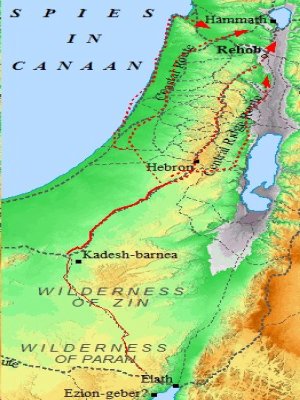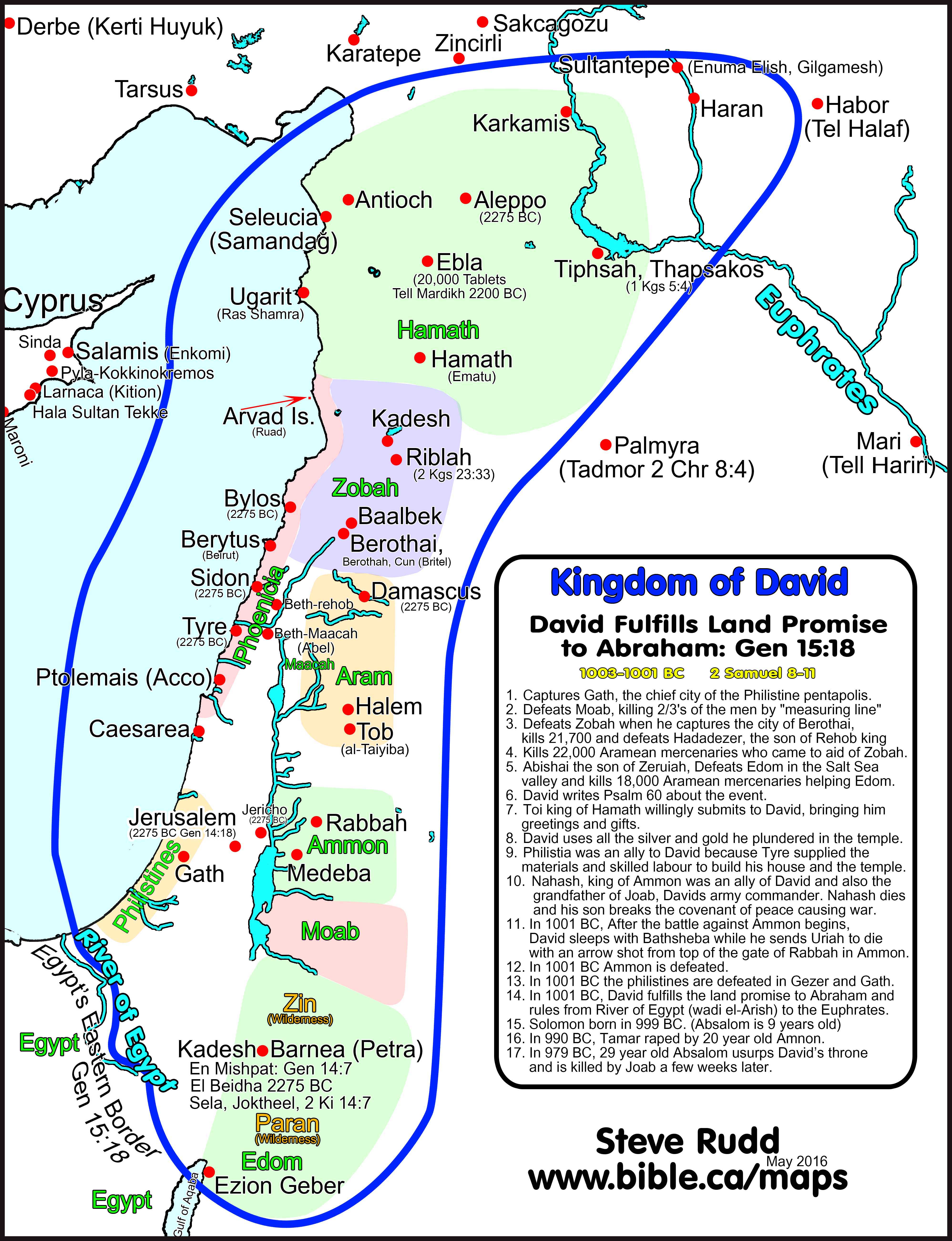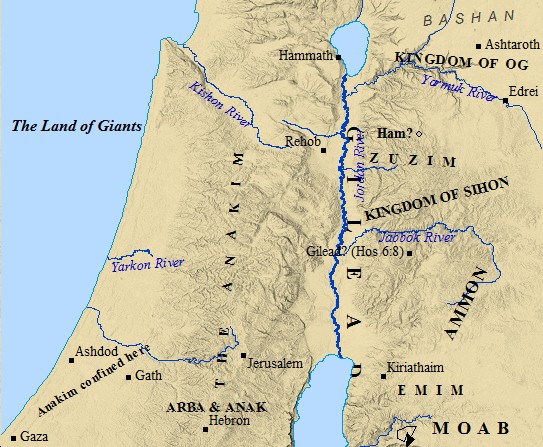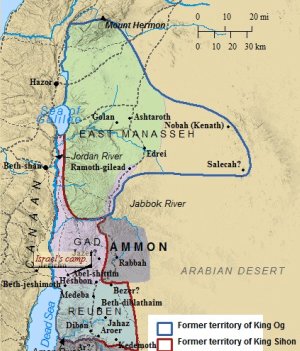This short chapter is an introduction to the next five chapters where the apportionment of the Land of Canaan among the Twelve Tribes of Israel is recorded.
(1) The remaining tribes of Israel received land in Canaan as allotted by *Eleazar the priest, Joshua son of Nun, and the tribal leaders.
- *Eleazar:
- Numbers 34:17: “Eleazar the priest and Joshua son of Nun are the men designated to divide the grants of land among the people.
- Notice the order: the high priest (the religious leader), Joshua the political/military leader then the leaders of each tribe.
- Eleazar was Aaron's third son and followed him in the priesthood. It was God's plan that the spiritual leader be first and Joshua would come to him to learn the will of the Lord.
- Aaron's two oldest sons had died because of their rebellion. Eleazar was the next oldest son and is now the head priest.
- Leviticus 10:1-2: Aaron’s sons Nadab and Abihu put coals of fire in their incense burners and sprinkled incense over them. In this way, they disobeyed the LORD by burning before him the wrong kind of fire, different than he had commanded. So fire blazed forth from the LORD’s presence and burned them up, and they died there before the LORD.
- Leviticus 16:1: The LORD spoke to Moses after the death of Aaron’s two sons, who died after they entered the LORD’s presence and burned the wrong kind of fire before him.
(2) These nine and a half tribes received their grants of land by means of sacred *lots, in accordance with the **LORD’s command through Moses.
- *lots:
- Proverbs 16:33: We may throw the dice, but the LORD determines how they fall.
- According to the theory of rabbis, stones with tribe names on them were in one urn and with locations in another. The word means "pebble." The result would probably have indicated only general areas leaving borders to be worked out later.
- **LORD’s command through Moses:
- Numbers 26:52-56: Then the LORD said to Moses, “Divide the land among the tribes, and distribute the grants of land in proportion to the tribes’ populations, as indicated by the number of names on the list. Give the larger tribes more land and the smaller tribes less land, each group receiving a grant in proportion to the size of its population. But you must assign the land by lot, and give land to each ancestral tribe according to the number of names on the list. Each grant of land must be assigned by lot among the larger and smaller tribal groups.”
- Numbers 33:54: You must distribute the land among the clans by sacred lot and in proportion to their size. A larger portion of land will be allotted to each of the larger clans, and a smaller portion will be allotted to each of the smaller clans. The decision of the sacred lot is final. In this way, the portions of land will be divided among your ancestral tribes.
- It is a strong evidence for the truth of this narrative that we read of no conflicts between the various tribes respecting the division of
territory. In no one case was there any complaint of unfairness, or any attempt to disturb the territorial arrangement made at the time of the
original settlement in the Promised Land.
(3) Moses had already given a grant of land to the two and a half tribes on the east side of the Jordan River, but he had given the Levites no such allotment.

- Numbers 32:33: So Moses assigned land to the tribes of Gad, Reuben, and half the tribe of Manasseh son of Joseph. He gave them the territory of King Sihon of the Amorites and the land of King Og of Bashan—the whole land with its cities and surrounding lands.
- Joshua 22:9: So the men of Reuben, Gad, and the half-tribe of Manasseh left the rest of Israel at Shiloh in the land of Canaan. They started the journey back to their own land of Gilead, the territory that belonged to them according to the LORD’s command through Moses.
- The Levites inherited some cities to live in, and their living was of the offerings in the tabernacle.
(4) The descendants of Joseph had become two separate tribes—Manasseh and Ephraim. And the Levites were given no land at all, only towns to live in with surrounding pasturelands for their livestock and all their possessions.
(5) So the land was distributed in strict accordance with the LORD’s commands to Moses.
(6) A delegation from the tribe of Judah, led by *Caleb son of Jephunneh the **Kenizzite, came to Joshua at Gilgal. Caleb said to Joshua, “Remember what the LORD said to Moses, the man of God, about you and me when we were at Kadesh-barnea.
- *Caleb:
- Numbers 14:24,30: But my servant Caleb has a different attitude than the others have. He has remained loyal to me, so I will bring him into the land he explored. His descendants will possess their full share of that land. ... You will not enter and occupy the land I swore to give you. The only exceptions will be Caleb son of Jephunneh and Joshua son of Nun.
- Deuteronomy 1:34-36: “When the LORD heard your complaining, he became very angry. So he solemnly swore, ‘Not one of you from this wicked generation will live to see the good land I swore to give your ancestors, except Caleb son of Jephunneh. He will see this land because he has followed the LORD completely. I will give to him and his descendants some of the very land he explored during his scouting mission.’
- The name “Caleb” literally means “dog”, which is a sometimes a term used derogatorily to refer to Gentiles. Furthermore, the fact that he’s referred to as a “Kenezite” might indicate he had a Gentile father and a Jewish mother. But, God placed him into the tribe of Judah. That means that he became a member of aristocracy, because from Judah came the kings, the great spiritual, political and military leaders of the nation.
- **Kenizzite:
- A search of Caleb's ancestry in 1 Chronicles 4, does not list his line of descent as being from Judah, since Jephunneh's father is not listed there. It would seem that Jephunneh wished to be included in the nation of Israel, and was included without his ancestral lineage in the tribe of Judah. This provision, for a Gentile to be included in Israel was clearly spelt out in the regulations for Passover (Exodus 12: 48-49). In this Exodus passage it is written: “If there are foreigners living among you who want to celebrate the LORD’s Passover, let all their males be circumcised. Only then may they celebrate the Passover with you like any native-born Israelite. But no uncircumcised male may ever eat the Passover meal. This instruction applies to everyone, whether a native-born Israelite or a foreigner living among you.”. When a Gentile joins the Family of Israel, his ancestry is Israel.
- Kenaz was a grandson of Esau (Genesis 36).
(7) I was forty years old when Moses, the servant of the LORD, sent me from Kadesh-barnea to explore the land of Canaan. I returned and gave an honest report,
(8) but my brothers who went with me frightened the people from entering the Promised Land. For my part, *I wholeheartedly followed the LORD my God.
- *I wholeheartedly followed the LORD my God: Six times, the Bible says that Caleb "wholeheartedly followed the Lord": (Numbers 14:24; 34:12; Deuteronomy 1:356; Joshua 14:8,9,14). That is the secret to Caleb's long life and success!
(9) So that day Moses solemnly promised me, ‘The land of Canaan on which you were just walking will be your grant of land and that of your descendants forever, because you wholeheartedly followed the LORD my God.’
- What Caleb said here, was, in effect, "We cannot divide the land until this prior question of my right to Hebron is determined." This was nothing but the simple truth. If the lots had been cast, and Hebron had fallen to one of the tribes other than Judah, it would have cost Caleb his rightful reward, as promised by God through Moses.
(10) “Now, as you can see, the LORD has kept me alive and well as he promised for all these forty-five years since Moses made this promise—even while Israel wandered in the wilderness. Today I am eighty-five years old.
- Only Joshua, among those who had wandered in the wilderness, was his age peer.
- This and Moses' mention of his being forty years old (Joshua 14:7) when Moses sent out the spies, and of his being now eighty-five years old are among the most important chronological facts given in Joshua. Israel wandered in the wilderness only about 38 years, because the first two years of the traditional forty years were utilized in the giving of the Law, the construction of the tabernacle etc. The sending out of the spies evidently occurred after about two years had elapsed following the Exodus (Numbers 10:11). Thus, thirty-eight years later when Israel entered Canaan, Caleb would have been seventy-eight years of age. Since he gives his age here as eighty-five, that would allow seven years for the Conquest of Canaan up to this point.
(11) I am as strong now as I was when Moses sent me on that journey, and I can still travel and fight as well as I could then.
(12) So give me the hill country that the *LORD promised me. You will remember that as scouts we found the descendants of **Anak living there in , walled towns. But if the LORD is with me, I will drive them out of the land, just as the LORD said.”
- **Anak:
- Apparently, the Anakim had reoccupied the hill country: Joshua 11:21: During this period Joshua destroyed all the descendants of Anak, who lived in the hill country of Hebron, Debir, Anab, and the entire hill country of Judah and Israel. He killed them all and completely destroyed their towns. None of the descendants of Anak were left in all the land of Israel, though some still remained in Gaza, Gath, and Ashdod.
- Caleb had trusted God to take care of the giants when he was sent to survey the land many years before and he knew God would be with him now.
- The Anakim had in the course of Joshua's campaigns in the south been expelled from "this mountain," i. e. the mountain country round Hebron, but they had only withdrawn to the neighboring cities of Philistia. Thence, they had, as must be inferred from the text here, returned and reoccupied Hebron, probably when Joshua and the main force of the Israelites had marched northward to deal with Jabin and his confederates. Caleb finally drove out this formidable race and occupied Hebron and its dependent towns and district permanently.
- The people of Moab called them the Emims, meaning terrors or horrible ones.
- Deuteronomy 2:18-21 refers to the fact that Ammonites called them "Zamzummim", which is related to a Hebrew which literally translates into "Buzzers", or "the people whose speech sounds like buzzing."
- The sons of Anak, the Anakim, are said in Numbers 13 to have been occupying Hebron, and likely the Central Highlands north of Jerusalem. Caleb drove the sons of Anak from their land, and forced them to migrate west, where they merged and assimilated with the Philistines. In Deuteronomy 2 the land of Ammon is said to belong to the Rephaim , a people as great as the Anakim, and also connected to the Nephilim. Og, the giant king of Bashan, was the last of the Rephaim, and king of the Amorites. Deuteronomy 3:11 gives the dimensions of Og's bed as over 14 feet long, and over 6 feet wide! 1 Samuel 17:40 depicts the battle between David and Goliath, the giant Philistine from Gath. 1 Chronicles 20:6-7 speaks of another Philistine giant, "a huge man with six fingers on each hand and six toes on each foot - twenty-four in all."
- *LORD promised me:
- Deuteronomy 1:36: except Caleb son of Jephunneh. He will see this land because he has followed the LORD completely. I will give to him and his descendants some of the very land he explored during his scouting mission.’
- Numbers 14:24: But my servant Caleb has a different attitude than the others have. He has remained loyal to me, so I will bring him into the land he explored. His descendants will possess their full share of that land.
(13) So Joshua blessed Caleb son of Jephunneh and gave *Hebron to him as his portion of land.

- *Hebron had been the burial place of Abraham and Jacob (Genesis 23:19; 25:9; 50:13). Hebron is some 20 miles South of Jerusalem, situated in an open valley, 3,040 ft. above sea-level. Caleb later willingly yielded his city to the Levites and lived in the suburbs (Joshua 21:12).
- Abram came and dwelt by the oaks of Mamre, "which are in Hebron" Genesis (13:18); from here he went to the rescue of Lot and brought him back after the defeat of Chedorlaomer (14:13); here his name was changed to Abraham (17:5); to this place came the three angels with the promise of a son (18:1); Sarah died here (23:2), and for her sepulcher Abraham bought the cave of Machpelah (23:17); here Isaac and Jacob spent much of their lives (35:27; 37:14); from here Jacob sent Joseph to seek his brethren (37:14), and hence, Jacob and his sons went down to Egypt (46:1). In the cave of Machpelah all the patriarchs and their wives, except Rachel, were buried (49:30; 50:13). The spies visited Hebron and near there cut the cluster of grapes (Numbers 13). Hoham, king of Hebron, was one of the five kings defeated by Joshua at Beth-horon and slain at Makkedah (Joshua 10). Caleb drove out from Hebron the "three sons of Anak" (Joshua 14:12; Joshua 15:14); it became one of the cities of Judah (Joshua 15:54), but was set apart for the Kohathite Levites (Joshua 21), and became a city of refuge (Joshua 20:7). One of Samson's exploits was the carrying of the gate of Gaza "to the top of the hill across from Hebron" (Judges 16:3).
- But, Joshua, the other faithful spy, was the last to receive his inheritance. Joshua 19:49-50: After all the land was divided among the tribes, the Israelites gave a piece of land to Joshua as his allocation. For the LORD had said he could have any town he wanted. He chose Timnath-serah in the hill country of Ephraim. He rebuilt the town and lived there.
(14) Hebron still belongs to the descendants of Caleb son of Jephunneh the Kenizzite because he wholeheartedly followed the LORD, the God of Israel.
(15) (Previously Hebron had been called *Kiriath-arba. It had been named after Arba, a great hero of the descendants of Anak.) And the land had rest from war.
- Kiriath-arba means “a city of four”. This city is also known as the site of the oaks of Mamre (Genesis 13:18; 35:27).
- Joshua 15:13-17: The LORD commanded Joshua to assign some of Judah’s territory to Caleb son of Jephunneh. So Caleb was given the town of Kiriath-arba (that is, Hebron), which had been named after Anak’s ancestor. Caleb drove out the three groups of Anakites—the descendants of Sheshai, Ahiman, and Talmai, the sons of Anak. Caleb said, “I will give my daughter Acsah in marriage to the one who attacks and captures Kiriath-sepher.” Othniel, the son of Caleb’s brother Kenaz, was the one who conquered it, so Acsah became Othniel’s wife.
APPLICATION and LESSONS to LEARN:
- Be encouraged in YOUR pilgrim journey! You have already received your inheritance in Christ and can claim "every spiritual blessing in the heavenly realms" (Ephesians 1:3). Since you have a glorious inheritance before YOU (1 Peter 1:3-6), keep looking up! The best is yet to come!
- Caleb had his hopes and his sights all during those 38 years of wandering in the wilderness set upon his inheritance in the land of Canaan. He was living for another land and a grand inheritance, and thus his hopes and dreams were not centered upon what he might be able to gain or own in this world. We Christians too need to view our lives in this world as being that of a stranger and an alien, for our true home and hope is reserved in heaven for us as we await the return of Jesus for us.
- We should imitate Caleb’s boldness in asking for what God promised him. We may find it hard to believe, but God appreciates this kind of boldness.
- This is how God wants us to be in our spiritual life as we advance in years: growing older, but never weaker in Jesus.
- Caleb followed the Lord. If God gave him an instruction he obeyed. If he was asked to do something he complied. We never read of an act of defiance. He never ran before the Lord. He did not try to lead in any way. He was just prepared to follow the Lord. This is true discipleship.
- The most important thing in all our lives is to fulfill our calling and destiny, which God has planned for us. Only then will we find fulfillment and contentment in our hearts when we are doing His will and we will then have a positive influence on others in helping them to identify and enter into their inheritance and calling in life. Many people never come into their inheritance because of uncertainty and lack of confidence as to what belong to them. But notice in verse 1 of Joshua 14, how there was a first identification of their inheritance before distribution. Ephesians 1:18 mentions the facts that in Jesus we have obtained an inheritance and in Ephesians 1:11 it refers to the riches of the glory of His inheritance revealing that we can know what our inheritance is.
- We as Christians have a tremendous eternal hope of being in heaven with the difficulties in life over with. But we're also convinced that we have already received our inheritance in Jesus Christ. As the apostle Paul says in Ephesians 1:3, we can claim every spiritual blessing. Caleb is a great example of the living hope the apostle Peter described in 1 Peter 1:3. This living hope for the future helps us to not just survive but thrive here and now, even when things are really tough, confusing, and discouraging.
- We far too often forget that our time here on earth is very short and what we have and what we see all around us is very temporary. Our bodies will only function for so long in this life before falling to the decay which is the curse of this earth. Caleb will have a major stake in that life, which will be eternal. One of the reasons we are so confused is that our focus is not on the eternal, but on what we have, what we are, and how other people behave or what they have. Caleb focused on God and on what God chose for him to do with his life. As a result, Caleb received special consideration both here on earth and in eternity. You are not going to get out of this world alive; you are not taking your body nor are you taking your possessions with you. You will take with you God’s Word which has been imprinted on your soul. Our life and our choices and our focus have eternal repercussions. Caleb received great earthly blessings and he was delivered after seven years of war. But his focus was not on his personal safety, nor was his focus on the land that he desired. Caleb’s focus was on God and God’s plan for his life.
- Joshua 14 sets forth two major points, which continue to have value for the people of God:
- Life in all its dimensions is to be lived according to the plans set forth by God, not by the greedy, selfish plans designed by man.
- Blessing comes ultimately to the man who totally follows God.
- Although his body was in the wilderness, so to speak, his heart and mind and soul were in Canaan. Caleb is a perfect illustration of Paul’s teaching in Colossians 3:1-4: Since you have been raised to new life with Christ, set your sights on the realities of heaven, where Christ sits in the place of honor at God’s right hand. Think about the things of heaven, not the things of earth. For you died to this life, and your real life is hidden with Christ in God. And when Christ, who is your life, is revealed to the whole world, you will share in all his glory.
- Unbelief looks at the giants; faith looks to God. Faith is often the suspension of man’s “common sense” in favor of wholly resting on God’s Word alone.
- Christian fathers want their sons to follow in our footsteps. Not necessarily in career, but in faith and relationship with the Lord.
- As New Testament believers…
We are to overcome the world. (1 John 5:5)
We are to overcome false doctrines. (1 John 4:1-4)
We are to overcome the wicked one. (1 John 2:13-14)
NOTES:
- Unless otherwise noted, the scripture version used is the New Living Translation.
- Sources and References are on line at: http://joshua-biblestudy.blogspot.com/2011/07/joshua-references-and-sources.html










